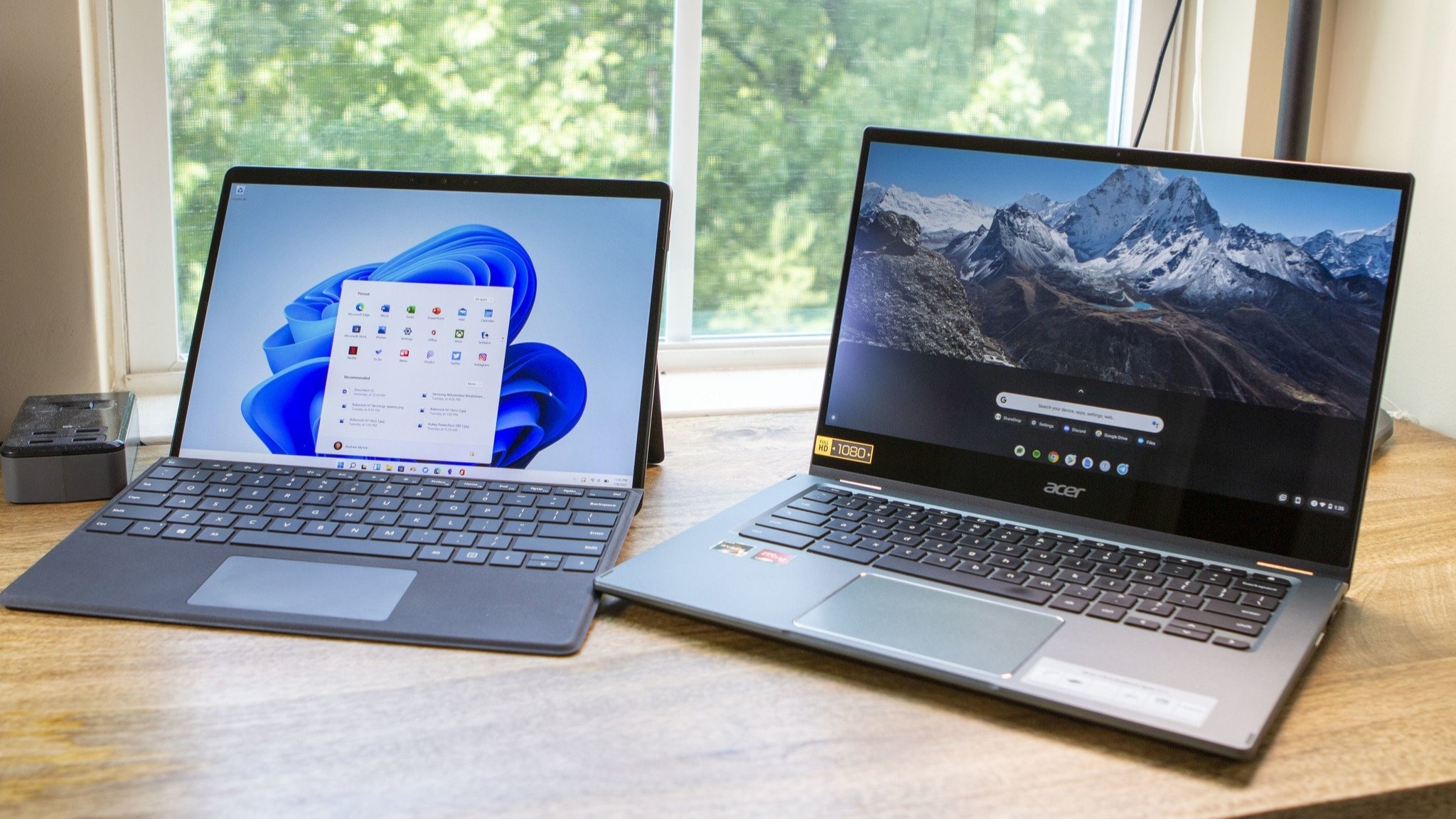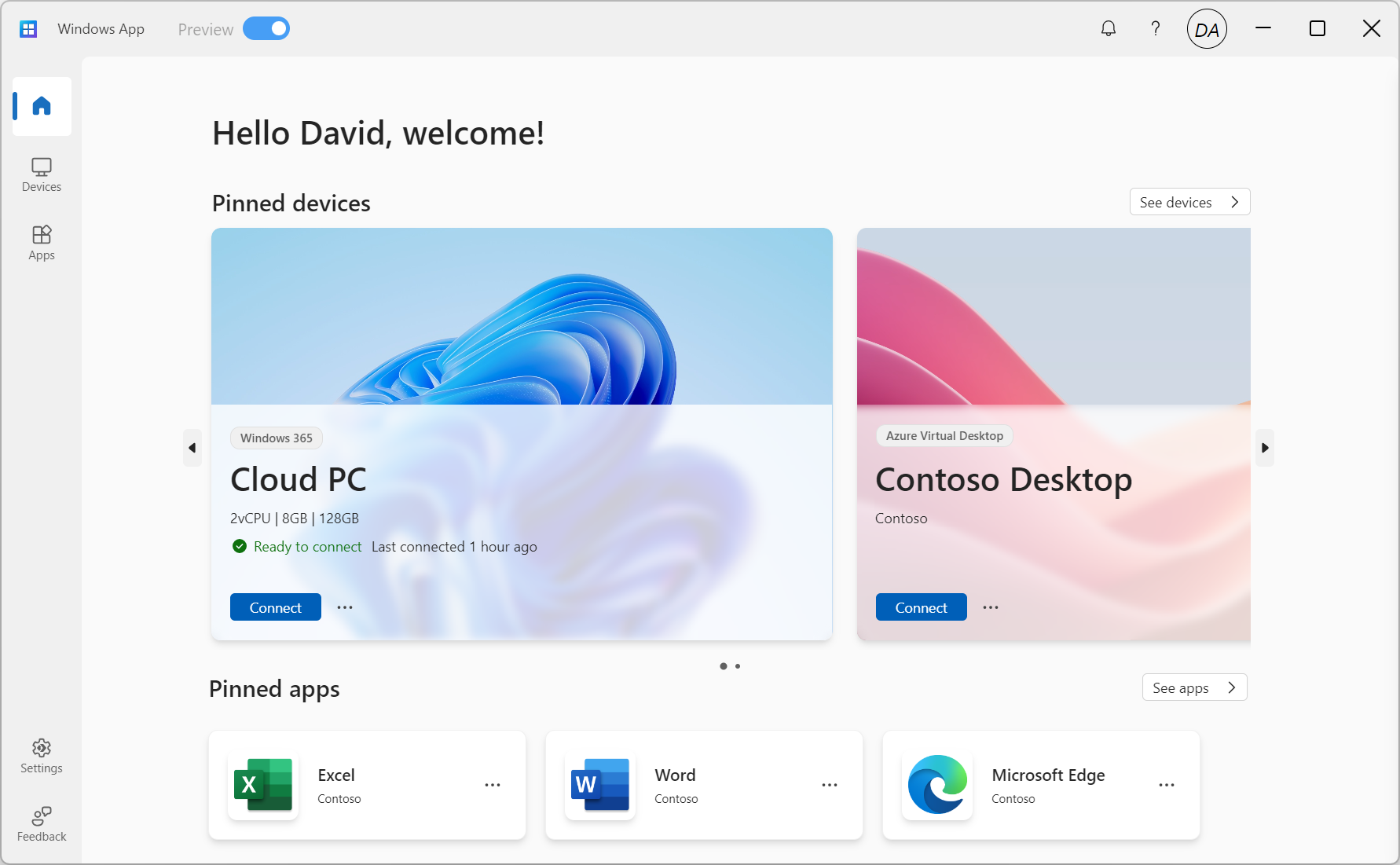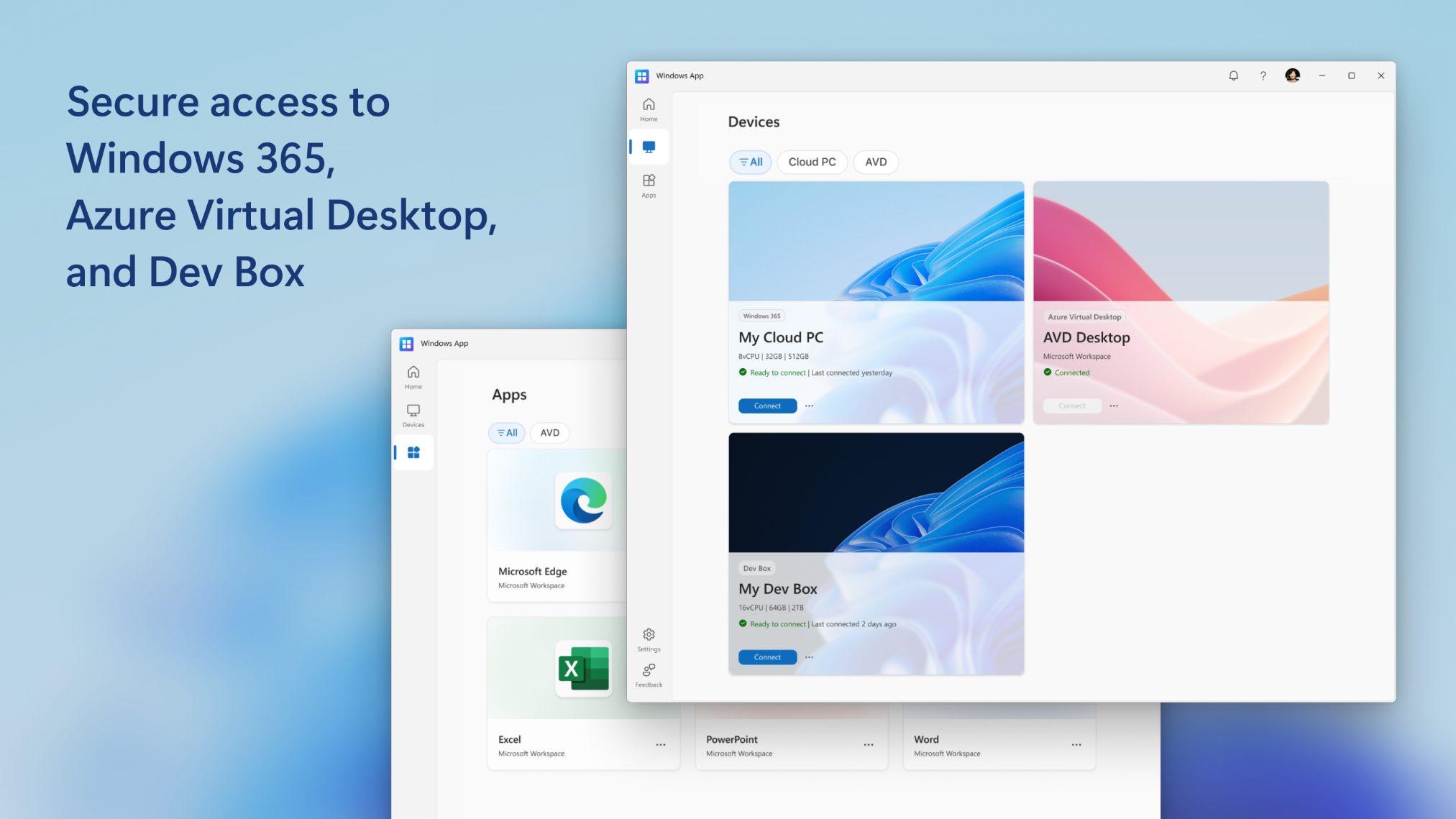
What you need to know
- During Ignite 2023, Microsoft introduced an all-new 'Windows App' to stream Windows PCs from anywhere.
- The app is compatible with macOS, iOS, iPadOS, and even Windows, but is not available for Android or ChromeOS.
- If you want to use this with a Chromebook, you'll have to rely on the browser implementation.
Chromebook owners have been longing for the ability to use Windows, or at least Windows apps, for years. There was some hope that this would have come from Parallels, but that's seemingly been locked down to the enterprise market. Then, Microsoft gave us a glimmer of hope during Ignite 2023, as the company released a new "Windows App."
Awkward name aside, the Windows App is designed to provide access to cloud computers from compatible devices. This includes things such as Azure Virtual Desktop, Windows 365, and Microsoft Dev Box. But, this new app also offers the limited ability to access Remote Desktop Services and remote PCs.

Unfortunately, it seems as though Android and ChromeOS have been left out to dry, for one reason or another. Not only is the Windows App not compatible with Chromebooks, but you also won't find a dedicated Android app. Making matters even more frustrating, Microsoft's support documentation states that you aren't able to access this service using a mobile browser.
The next roadblock, even if you fired up Chrome, is that you'll need a registered work or school account. On the surface, this is an obvious limitation as it's not meant to give everyone with a Microsoft account access to a PC in the cloud. However, if you're using a Mac, iPhone, or iPad, you can actually connect to your own Windows computer, provided that you have Remote Desktop Services enabled.
In the support documents, Microsoft states that it "doesn't currently support these connections." Even still, it feels a bit odd to include this functionality to begin with, even if it's not "officially" supported.

There are a few different solutions available for those using Chromebooks in the enterprise space. However, the same can't be said when it comes to the consumer market. On one hand, Chromebooks continue to improve at an incredibly rapid pace, as evidenced by Google's Chromebook Plus initiative.
However, there are still some things that you can't do on ChromeOS that you can do on Windows or macOS, and you definitely don't want to run Windows on a Chromebook. We'll be keeping our fingers crossed to see if this changes, but we aren't holding our breath.







